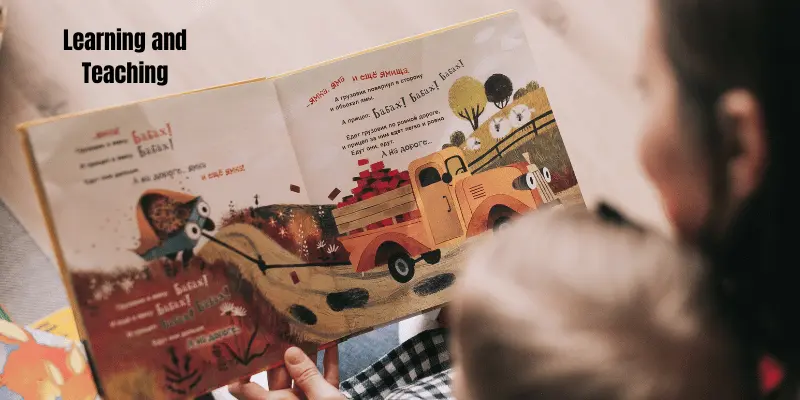Importance of Storytelling – Why Stories Matter
Updated: 03 Oct, 2024
1786
Let’s discuss the importance of storytelling. Storytelling is one of the oldest and most powerful ways humans communicate and connect.
You can find the footprints of stories from ancient cave drawings to modern-day films and novels.
Stories are the core part of every culture. But why is storytelling important, and what is its real value in our lives?
This article explores the importance of storytelling, its benefits, and how it impacts us as individuals and as a society.
What Is Storytelling?
Storytelling is the art of sharing stories, whether they are real or imagined.
It is the process of using words, sounds, images, and emotions to communicate a message.
From bedtime tales to movies and even the news, storytelling is how we make sense of the world.
Why Is Storytelling Important?
Storytelling plays a huge role in human life for several reasons:
Connection and Human Experience
Stories help us connect with others. Maybe it’s an ancient myth, a personal anecdote, or a family tradition.
Storytelling can create bonds by allowing us to share experiences.
It brings people together, providing a shared understanding and emotional connection.
This is why storytelling and human connection are so tightly linked.
Learning and Teaching

Throughout history, storytelling has been used as a tool for teaching.
The importance of storytelling as a teaching method lies in its ability to simplify complex ideas and make them more relatable.
From moral lessons in children’s books to real-world case studies, stories engage the listener, making learning more effective.
Cultural Preservation
Storytelling is an important in preserving history and culture. Many traditions and beliefs are passed down through generations via stories.
Folktales, myths, and legends carry the wisdom, values, and customs of different societies.
This makes storytelling essential for keeping cultural identity alive.
Benefits of Storytelling
Now let’s discuss the benefits of storytelling:
Building Empathy
Stories let us step into someone else’s shoes and see the world from their perspective.
Even if it is a character in a book or a real-life story, this process helps us develop empathy and understand the experiences of others.
Improving Communication
Knowing how to tell a good story is key to improving communication.
Great storytelling involves clarity, structure, and engaging emotions. It also includes skills that help in personal conversations, public speaking, or even business presentations.
Techniques of storytelling, such as pacing, tone, and narrative arc, can elevate the way we communicate.
Emotional Healing
Stories also have a therapeutic effect. If you Tell your story or hear someone else’s, it will bring comfort, healing, and perspective.
It helps people cope with emotions, process experiences, and find meaning in life’s challenges.
The Power of Storytelling

Why is storytelling so powerful? It’s because stories tap into our emotions, helping us understand the world and ourselves.
The power of storytelling lies in its ability to inspire, persuade, and influence people on a deep emotional level.
In marketing, politics, and entertainment, stories drive action.
Brands use stories to connect with customers, while politicians use them to persuade voters.
The purpose of storytelling is not just to entertain, but to inspire thought and action.
Storytelling in Society
In society, storytelling plays a huge role in shaping how we view the world.
Through storytelling mediums like books, movies, and social media, we share experiences, ideas, and opinions.
This helps build communities and fosters a sense of belonging.
The importance of storytelling in society can’t be overstated. It helps to shape public opinion, preserve traditions, and inspire change.
Why Do Humans Tell Stories?
Humans have told stories since ancient times. Why do humans tell stories? It’s part of our DNA.
Stories help us make sense of life, provide a sense of identity, and create meaning.
We can share memories, teaching lessons, or imagining the future, stories help us navigate the world.
Storytelling Techniques and Mediums
Good storytelling does not happen by chance—it requires skill and practice.
So, what makes good storytelling? Here are a few key techniques of storytelling:
- Strong characters: Engaging and relatable characters draw the audience in.
- Clear structure: A good story has a beginning, middle, and end.
- Emotion: The best stories evoke emotions like joy, sadness, or curiosity.
- Visuals and details: Using imagery and vivid descriptions brings the story to life.
There are various storytelling mediums, from oral storytelling, written stories, and films to podcasts and video games.
Each medium offers a different way to connect with the audience.
Conclusion: The Value of Storytelling
The value of storytelling is undeniable. It helps us connect, learn, preserve culture, and heal emotionally.
Whether you’re a writer, a teacher, a business owner, or just someone who loves a good tale, the impact of storytelling is vast and profound.
Embracing stories enriches both individuals and society, making storytelling one of our most powerful tools.
So, next time you hear or tell a story, remember you are not just sharing information, you are creating connections and shaping the world around you.
FAQs
What is storytelling, and why is it important?
Storytelling is the art of conveying a message, idea, or experience through a structured narrative. It is important because it helps us connect, communicate, and share emotions effectively. Stories shape our perceptions, preserve traditions, and inspire change in society.
How does storytelling build empathy?
Storytelling allows us to see the world through someone else’s eyes, helping us understand their emotions and experiences. By stepping into a character’s journey, we develop compassion and a deeper connection with others. This is why stories are powerful tools for fostering understanding in diverse societies.
Can storytelling improve communication skills?
Yes, storytelling enhances communication by improving clarity, structure, and engagement. Effective storytelling techniques, such as tone, pacing, and emotion, make conversations and presentations more impactful. Whether in business, public speaking, or personal interactions, good storytelling captures attention and conveys messages clearly.
What role does storytelling play in emotional healing?
Storytelling provides comfort, perspective, and healing by allowing individuals to express and process emotions. Sharing personal stories can be therapeutic, helping people cope with trauma, grief, or stress. Hearing relatable stories also provides reassurance and fosters emotional resilience.
Why is storytelling such a powerful tool?
Storytelling is powerful because it engages emotions, making information more memorable and persuasive. It influences thoughts, behaviors, and decisions in marketing, politics, education, and entertainment. A compelling story can inspire action, create awareness, and shape public opinion.
How does storytelling impact society?
Storytelling plays a vital role in shaping culture, values, and societal norms. Through books, films, and social media, stories educate, entertain, and bring communities together. It also preserves history, traditions, and shared human experiences across generations.
Why do humans naturally tell stories?
Humans tell stories to make sense of life, pass down knowledge, and build identity. Since ancient times, stories have been used to explain the unknown, teach lessons, and foster relationships. Storytelling is an innate human trait that helps us understand our past and imagine the future.
What are the key techniques of effective storytelling?
Good storytelling includes strong characters, a clear structure, and emotional depth. Engaging stories also use vivid descriptions, visuals, and pacing to create a compelling narrative. These elements help captivate the audience and make the story more memorable.
What are different storytelling mediums?
Storytelling can be expressed through oral traditions, written narratives, films, podcasts, and video games. Each medium offers a unique way to engage audiences and convey messages. The choice of medium depends on the story’s purpose and the target audience.
How does storytelling add value to our lives?
Storytelling connects people, preserves culture, and enhances emotional well-being. It teaches lessons, inspires creativity, and helps individuals find meaning in their experiences. By embracing storytelling, we enrich both our personal lives and society as a whole.
Bonus Info on the Importance of Storytelling
- Storytelling in Education: Storytelling is a powerful teaching tool that makes learning more engaging and memorable. It helps students understand complex concepts by presenting them in a relatable and easy-to-follow format. Teachers often use storytelling to spark curiosity, encourage creative thinking, and make lessons more enjoyable.
- The Role of Storytelling in Marketing: Brands use storytelling to create strong emotional connections with their audience. A well-crafted story can enhance customer loyalty and make products or services more appealing. Story-driven marketing campaigns are more persuasive, leaving a lasting impression on consumers and influencing their purchasing decisions.
- Storytelling in Leadership: Great leaders use storytelling to inspire and motivate people. By sharing compelling narratives, they effectively communicate their vision, values, and goals. Leaders who share personal experiences and challenges build trust, making their messages more impactful and relatable.
- The Neuroscience of Storytelling: Scientific studies show that storytelling activates multiple areas of the brain, making information easier to remember. Engaging stories trigger emotional responses, which helps messages resonate deeply with the audience. The human brain naturally seeks patterns and meaning, making storytelling one of the most effective ways to convey ideas.
- Digital Storytelling in the Modern Age: With the rise of social media and digital platforms, storytelling has evolved beyond traditional formats. Video content, blogs, and podcasts have become popular ways to share stories with a global audience. Interactive storytelling, such as virtual reality (VR) and augmented reality (AR), offers immersive experiences that bring narratives to life in new and exciting ways.
- Storytelling as a Cultural Bridge: Stories play a crucial role in bridging cultural gaps by sharing diverse perspectives and traditions. Folktales, myths, and legends help preserve heritage and values across generations. Global storytelling platforms allow people from different backgrounds to connect, fostering understanding and appreciation of various cultures.
- How to Improve Storytelling Skills: Improving storytelling skills requires practice, whether through writing, speaking, or sharing personal experiences. Observing great storytellers in books, movies, and speeches can help identify effective techniques. Focusing on authenticity, emotion, and clarity makes stories more engaging and impactful.
- The Psychology of a Good Story: People connect more deeply with stories that evoke emotions such as joy, sadness, or inspiration. Conflict and resolution make narratives more compelling by creating suspense and keeping the audience engaged. Personal anecdotes and real-life experiences add credibility, making stories more relatable and memorable.
- The Connection Between Storytelling and Memory: Stories help people retain information better than plain facts or data. Narratives create strong mental associations, making concepts easier to recall. This is why storytelling is widely used in education, advertising, and motivational speeches to ensure lasting impact.
- The Timeless Nature of Storytelling: Storytelling has been an essential part of human communication for thousands of years. From ancient cave paintings to modern digital content, the way we share stories continues to evolve. Despite changes in mediums, storytelling remains timeless because it engages, inspires, and connects people across generations.
Please Write Your Comments